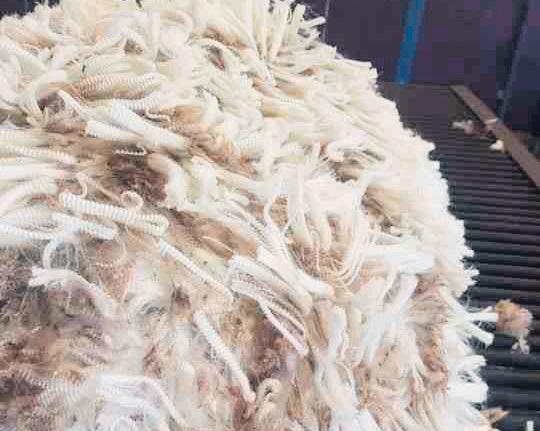
2 minute read
Sow certainty on farm with proven endophyte
on our farm.
I wanted a tetraploid perennial that was persistent, palatable and responsive to summer and early autumn rains. Having evaluated several varieties on our farm, I now use Base tetraploid perennial ryegrass with AR37 endophyte almost exclusively in our pasture improvement programme. A particular feature of it is its persistency (I have many paddocks untouched for over five years) and its ability to maintain feed quality into the early summer. It has also been a reliable performer in producing good quality silage in large quantities with up to three cuts on some out paddocks.” explains Tim.
DLF Seeds have been the leaders in bringing to market novel endophytes (such as AR37), to provide farmers with insect control, improved animal safety and animal productivity and increased dry matter performance over standard “wild” type endophyte.
We have supplied the market with novel endophytic grasses for over 20 years, and developed the research, knowledge and understanding of how to ensure we deliver viable endophyte (percentage of live endophyte) in the seed we supply. Viable endophyte means that the grass will provide the level of insect protection we expect. AR37 endophyte has been sown on Australian farms for over 15 years, taking ryegrass pasture persistence and protection to a premium level by controlling insects such as Argentine Stem Weevil larvae, Pasture Mealy Bug, adult Black Beetle and Root Aphid. Offering on farm certainty and ample benefits, AR37 provides farmers with
→ an unbeaten balance of pasture production and persistence
→ higher tiller density over time
→ assistance with postdrought recovery and improved agronomic performance
→ stronger control of more insect pests compared to ryegrass cultivars containing AR1 endophyte or standard endophyte (SE)
→ the potential for greater carcass weight per hectare compared to ryegrass cultivars containing SE
→ greater return on investment
→ increased total dry matter production compared to ryegrasses containing AR1 or no endophyte
→ no Ergovaline (an alkaloid produced by some endophytes) for increased milk production (endophytes containing Ergovaline may impact milk production)
→ increased sheep performance compared to ryegrass cultivars containing SE
→ low incidence of dags in sheep
Victorian farmer Leigh Weston (Wonthaggi) has seen the increase in milk production a highquality ryegrass with a proven endophyte can offer “Base with AR37 suits our farm and our management style. When the cows come in here, you will get another litre or two in the vat, there's no doubt about it.” Explains Leigh.
AR37 is available in perennial ryegrass varieties such as Base and Vast tetraploid perennial ryegrass, Legion, One50, Platform diploid perennial ryegrass and the NEW late heading Reason diploid perennial ryegrass; as well as Mohaka tetraploid hybrid ryegrass.
Endophyte technology has advanced significantly since the 1980's and we have continued to help develop novel endophytes which provide the long-term pasture persistence and protection from pests that farmers require, while reducing animal health issues.
High performance varieties containing AR37 endophyte can be found at all major and local rural retailers.
For more information on AR37 and other endophytes, contact your local DLF Seeds Sales Agronomist on 1800 619 910 or by visiting dlfseeds.com.au
In 2021 Moogenilla Angus sold Moogenilla Quinella Q33 to a syndicate of leading Australian studs, with semen being collected and distributed to Australian and overseas breeders by Agrigene.
Quinella was attractive to the buyers for a number of reasons, including his modest mature cow weight combined with strong growth, however it was the maternal depth that clinched the deal and attracted other leading studs to also purchase semen in following years.
Interested parties were able to inspect not only Quinella’s



